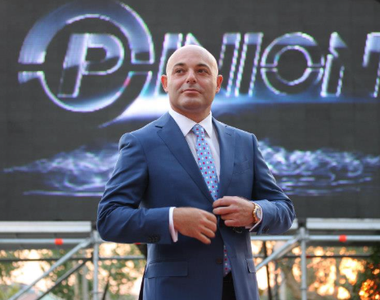
When the word "bullying" was first used there around the 1500s, it had nothing to do with the meaning it has today, on the contrary, it originated in Dutch, it meant "beloved". But in the course of time, "bullying" changed to "bullying the weak", a connotation that still stands today, although it happens to be misunderstood and confused. The generalization of bullying with other human behaviors, wrong, but nonetheless non-bullying, has raised the concern of experts in the field.
To give an example, we will refer to Monday's episode of "Për'Puthen". In general, one of the new competitors, Juli, addressed Cindy saying that "he has heard many good words about her" and she is like "Borsch oil" (Borsh oil is known as extra virgin oil; Cindy has declared that she is a virgin). Juli explained his comparison, which he said was a joke, adding that it meant Cindy was a good girl.
"If I offended you, ok, I apologize," he added. "I do not expect anything from you, you are going out, go through your caves and once you have no chance with me," replied Cindy who did not accept forgiveness calling his behavior bullying. Juli's sentence may be a joke, redundant, inappropriate comment, insulting why not and much more, but it is not bullying.
To better understand what goes wrong with the treatment of bullying nowadays, we will refer to the explanation of the term from reliable and valued sources.
The National Center Against Bullying (NCAB), an Australian foundation, defines bullying as a persistent and deliberate abuse of power in relationships through repeated verbal, physical and / or psychological behavior intended to cause physical, social and / or psychological harm. ; may involve an individual or a group that harms one or more persons. "Bullying can happen in person or online, through other platforms, covertly or directly."
The American Psychological Association, the largest scientific and professional organization of psychologists in the United States, defines bullying as “a form of age-old behavior in which one intentionally and repeatedly causes harm or distress to another. Bullying can take the form of physical contact, more subtle words or actions. "The bullied individual usually has problems defending himself and does nothing to cause bullying."
Bullying can have different definitions, but the essence, accepted by mental health professionals, behavioral and educational experts, is the same: It involves aggressive physical, verbal and / or psychological behavior towards a certain person, repetitive behaviors in time, which are intended to unbalance power and exclude the victim from the group.
Në rastin e “Për’Puthen”, veprimi i Julit, i konsideruar fyes nga disa dhe vetë Sindin, nuk ka ndodhur në mënyrë të përsëritur, përkundrazi ishte hera e parë që i drejtohej Sindit. Fyese ose jo, fjalia e tij nuk besojmë se ka për qëllim të “çekuilibrojë fuqinë e Sindit dhe ta përjashtojë nga grupi”, siç rëndom ndodh me bullizmin.
NCAB thekson se nuk është bullizëm:
- episode të vetme të refuzimit ose mospëlqimit shoqëror
- veprime të ndryshme episodike
- veprime episodike agresive, fyese
- argumente reciproke, mosmarrëveshje ose grindje
"Tani ne shohim shumë prindër që përpiqen të përgjithësojnë se çfarë është bullizmi - çdo herë që fëmijët i bëjnë diçka njëri-tjetrit, le ta quajmë bullizëm dhe të merremi me të në këtë mënyrë,” tha për CNN Kevin Quinn, president i Shoqatës Kombëtare Amerikane të Zyrtarëve të Burimeve të Shkollave.
Disa studiues thonë se termi “bullizëm” është keqpërdorur dhe abuzuar vitet e fundit. "Duke e quajtur gjithçka bullizëm, ne në të vërtetë nuk po njohim seriozitetin e problemit," tha po për CNN Elizabeth Englander, një profesoreshë e psikologjisë dhe themeluese dhe drejtoresheshë e Qendrës së Reduktimit të Agresionit në Massachusetts. “Është një nga efektet anësore, fatkeqësisht, të bërjes së një fushate ndërgjegjësimi. Të gjithë duan ta adoptojnë.”
Experts call this phenomenon "bullying bullying". "It is an unrelenting cruelty to the nature of such an environment to include any social quarrels or quarrels in general under the rubric of bullying," Englander writes in his book Bullying and Cyberbulling.
"If everyone is a victim, then no one is a victim," she said.







